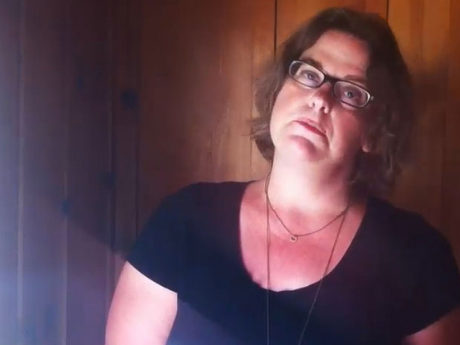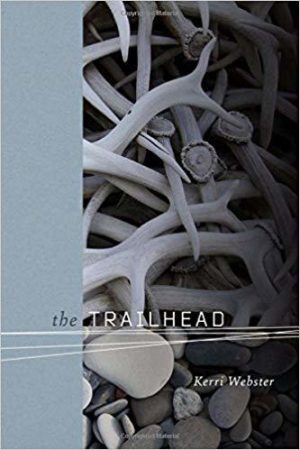In Their Own Words
Kerri Webster on “Vanitas”

Vanitas
Striated stones returned to the wrong river, blue house
falling into the sun, the systems refusing to be allegory—
when I was fully present I thought presence would
kill me, vines forcing through windows and the soul-
sucking slowing of time when I broke inside. Here
is your weighted blanket, here is your poppy, I know
a woman just waiting for elegy to show up in her brain,
alive only for that, and then she can go. I pretend
form will save us, worry about how much the reiterative
soothes me, stones lined on the sill so my mind
stays still in this realm. Here is the landmass tattooed
on my body, here are the flowers we've planted
to cover up what we've done, creeping myrtle, creeping
phlox, creeping thyme, none of this easy, what with
the man shoving the girl's face into the ground,
what with the world burning down, creeping alyssum
shock-yellowing the yard, sea of stems pinning down
absolutely nothing. Daily I wake inside expiation's
failure, bee brooch pinned to my breast instead of
a cross, testament to the foolishness of placing pleasure
before all we could not bear, our souls the color of
propolis but our monkey hearts marbled with folly.
The way a command can also be a plea: Fuck me,
the imperative our truest tense because who doesn't want
to top from bottom, really, rule and abdicate
all in one breath? I know a widow who didn't make
love for ten years, slow death my mind can't grasp,
glancing then glancing away. The air tastes of sugar and
my hilly body's one hell of a gateway and when I first
saw the statue of the great god Pan, I wanted very much
to mount him, lick that sweet spot where pelvis meets
furry haunch. I gray splendid, I come in palms, and
I would never, ever be a girl again, despite all the years'
terrible knowledge. We move through these long last days
touched, which is to say fingered, which is to say moved,
which is to say mad. The stranger carves a gold tunnel
through the gold book. The river faces up neon, glows and
glows. I set my glasses by the bed, walk the river path.
Show me the gold tunnel. Show me where the gold tunnel goes.
From The Trailhead (Wesleyan, 2018). All rights reserved. Reprinted with the permission of the author.
On "Vanitas"
A vanitas isn't a vanitas if it's just the skull; it's the juxtaposition of bone and beauty, often ruinous beauty, that creates the discourse. In "Vanitas," then, many magpied details: a stunning statue of Pan in the St. Louis Art Museum, the weighted blankets used to calm anxious humans, the Idaho tattoo my siblings and I got on our mother's 70th birthday, a bee pin I saw at a pawn shop, a very real twenty-mile river path that runs along the Boise River, and an imagined tunnel I don't yet understand.
There was a moment, it felt like, when everyone was talking about being more fully present as a path to contentment. I'm not advocating oblivion—I've courted it, and it wasn't pretty—but what strikes me when I hear talk of "presence" is that, as "Vanitas" says, "when I was fully present I thought presence would/kill me"—that the times in my life when I've felt most alive have been times of crisis, times of amygdala and adrenal overdrive, times when time itself slowed down to a nearly unendurable crawl—the year cancer ate my mother's body, for example, until morphine released her from presence. I'm wary in general of things that fall under the umbrella of "self-care" because they're so often a function of privilege and, very specifically, a way to get white women to see themselves as monetized projects and spend /schedule selfhood accordingly. To be truly present is an ethical imperative, not a purchased luxury, and it hurts, often to the point of shattering. I'm writing this in a week in which the presence of 2,000 children was reduced to the pinpoint terror of their parents' absence, and many of us made ourselves listen to the audio of their cries. It took me a full day to make myself click on that. "Vanitas" explores the desire to look away, the desire to numb after looking, the desire to lose oneself in desire or beauty, and the cognitive dissonance created at the intersection of moral imperative and human failing.



